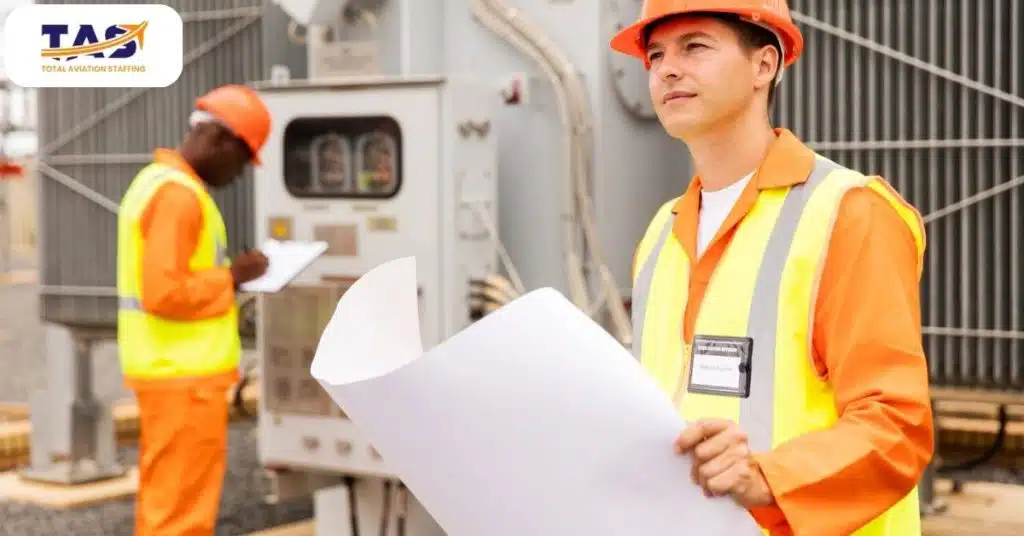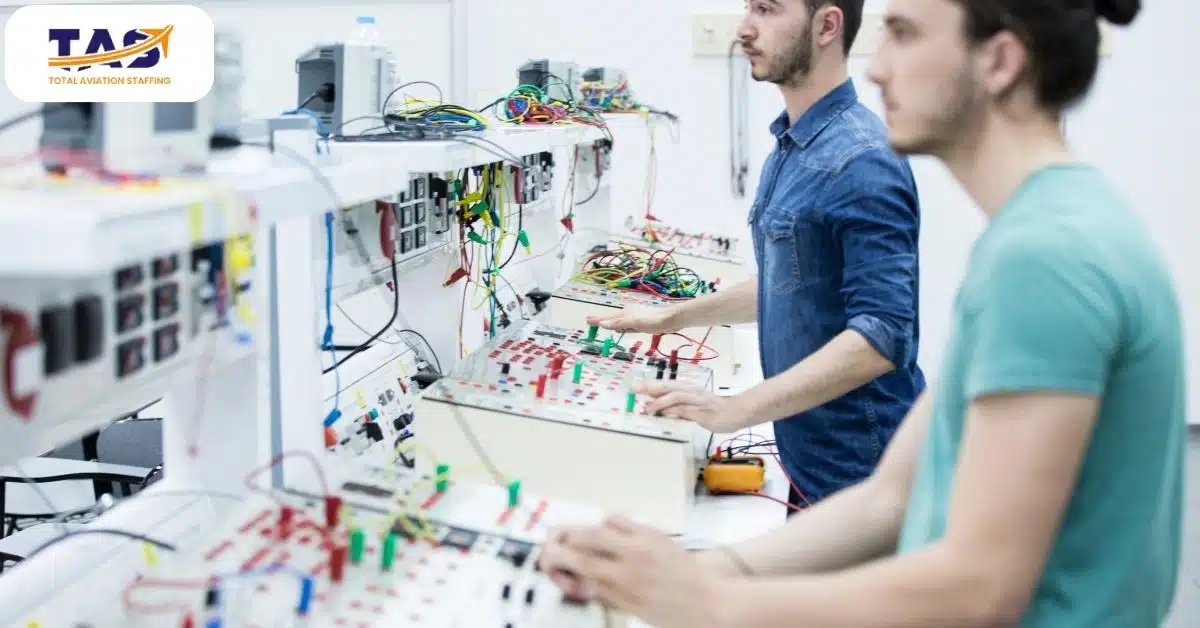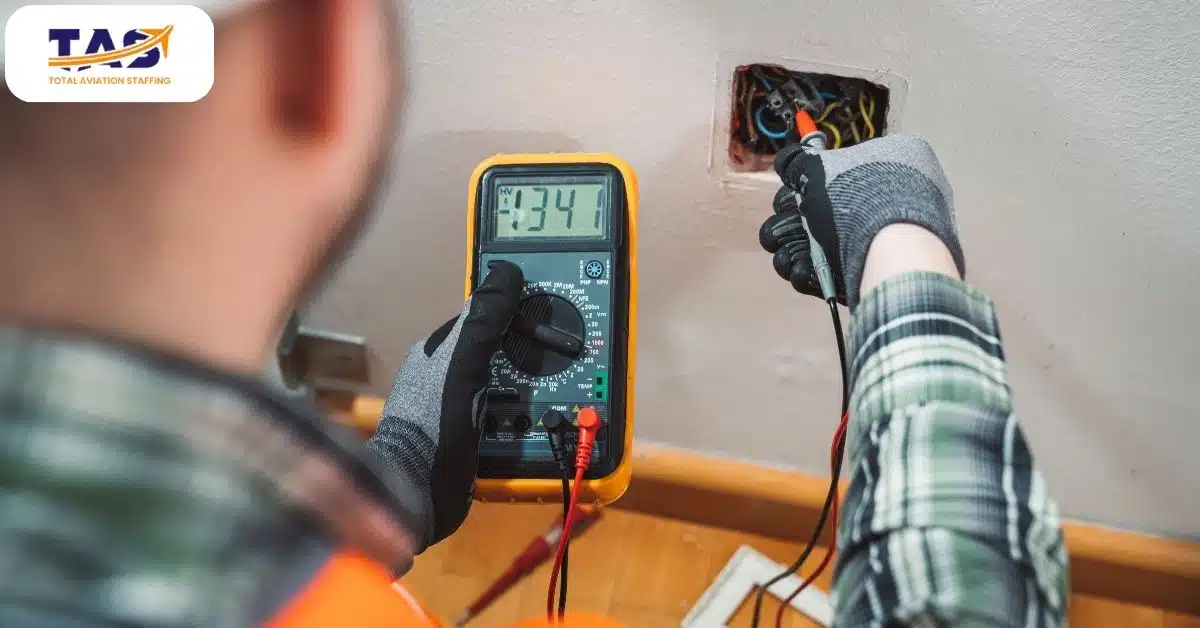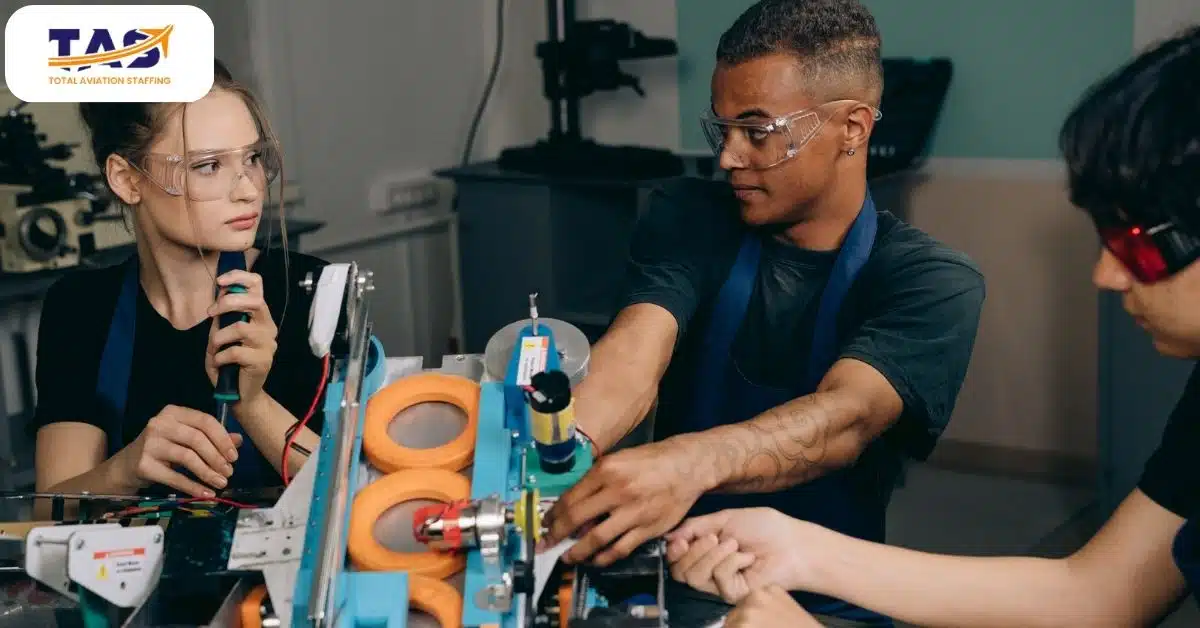Electrical Engineer Hiring Tips: Finding The Right Candidates

Are you looking for the best electrical engineer to join your team? The hiring process for engineers can be tricky, as you need to ensure that the candidate has the right knowledge and skills to succeed in their role. In this blog post, we will provide some top tips on how to effectively hire electrical engineers, from understanding what makes a great engineer know which questions to ask during the interview process. By following these tips, you can be sure that you will find the perfect electrical engineer for your organization!
1. Craft a Detailed Job Description
When hiring an electrical engineer, aviation organizations must craft a detailed job description that accurately outlines the desired qualifications and responsibilities of the ideal candidate. The job description should include particular skill sets, such as familiarity with aviation-related electronic systems and proficiency in working with complex components.
Companies need to make sure they are knowledgeable about current electrical engineering best practices to provide candidates with the most accurate understanding of the role they would be expected to fulfill. Recognizing the value of comprehensive onboarding resources is also essential for aviation organizations looking for experienced engineers – experienced candidates expect to have access to up-to-date training manuals containing instructions for commonly used systems elsewhere in their industry.
By constructing a thorough job description and providing appropriate resources, aviation organizations can ensure their search process leads them to just the right candidate.

2. Develop an Interview Process That Evaluates Technical Skills and Soft Skills
Developing an interview process that accurately evaluates the technical and soft skills of electrical engineer candidates is vital for aviation employers. It’s important to develop questions that assess not only a candidate’s competency in their field but their aptitude for collaboration and problem-solving within aviation teams.
Equip yourself with a mix of open and closed-ended questions about aviation engineering challenges, industry knowledge, and technical skills. Additionally, consider incorporating conversation tasks such as working through aviation case studies or asking candidates how they would handle particular scenarios on the job.
This type of approach will help aviation employers make well-informed decisions when it comes to choosing the right candidate for the role.

3. Use Recruiting Software to Automate the Hiring Process
Many aviation companies looking to hire quality electrical engineers can find the ideal candidate through the use of recruiting software. Recruiting software can automate the hiring process and streamline the search, allowing aviation employers to quickly sift through resumes and narrow down applicants who most closely meet their requirements.
Such applications make it easier for aviation companies to compare information between candidates quickly, while also eliminating any potential bias during the interview process. With automated recruiting software, aviation organizations can identify the right electrical engineer more accurately, efficiently, and cost-effectively in comparison with traditional recruitment methods.

4. Focus on Qualifications Over Experience for Fresh Graduates
When hiring a fresh graduate for an electrical engineering position, it is important to consider qualifications over experience. While aviation and other specialized industries may require candidates with a certain number of years in the field, many start-up companies can benefit from someone fresh out of college who has the latest knowledge of the industry and its best practices.
In addition to checking references and certifications, looking for someone with problem-solving skills or a passion for tech can be indicative of good qualifications. As such, it is important for employers to focus on finding the right person for the job regardless of experience level or aviation specifics.

5. Seek Out Professional Organizations for Networking & Resources
When searching for talented electrical engineers, aviation employers should take advantage of professional organizations that specialize in this field. Networks such as these offer incredible job-seekers a wealth of resources, including access to industry certifications and training seminars catered to the aviation electrification sector.
Such education is invaluable for any aviation electrical engineer and can help bridge the gap between talented professionals and aviation employers. Networks also provide candidate outreach opportunities through hosting job fairs, student chapters, and other networking events. Aviation employers can find reliable and skilled electrical engineering candidates across many platforms associated with professional organizations, ranging from social media sites to career recruitment tools.
Making use of these networks can be highly advantageous when looking for high-level talent within aviation electrics engineering departments.

6. Utilize Social Media Platforms to Reach Candidates
Utilizing social media platforms to reach aviation-focused electrical engineers is a strategic way to enhance the candidate pool for aviation engineering roles. Differing from traditional recruitment sources, social media makes it easier for employers to find unique talent and establish relationships with potential candidates prior to scheduling an interview.
Employers can post job openings on social media platforms such as LinkedIn which may yield more viable applicants due to word-of-mouth referrals across various aviation-related networks. Candidates have the ability to quickly respond to job postings or contact employers as needed.
Employers within aviation are able to share industry updates and highlight career opportunities, providing a deeper connection with their target audience. Thus creating a positive avenue for mutual professional growth between employer and employee alike.

7. Make Your Offer Competitive With Local Market Standards
To successfully find the right candidate to fill a role as an aviation electrical engineer, employers need to make their offer competitive with local market standards. Offering salaries that are in line with the current industry practices will ensure that employers attract the most qualified and experienced professionals.
Employers should also consider offering benefits packages that stand out from other offers in their area, such as flexible work locations, paid time off, and professional development opportunities. Having a comprehensive package not only helps to bring in employees who have a strong skill set, but also those who have a sense of loyalty and commitment to their employer.
Consider equipping each aviation electrical engineer with the resources necessary for completing tasks safely and effectively so that they can continue to grow professionally within your company for years to come.

8. Consider Flexible or Remote Workspaces
For businesses and aviation companies looking to hire electrical engineers, considering offering flexible or remote workspaces can provide a great way to find and hire the most qualified candidate for the job. With more and more workplace options becoming available, having the ability to offer a variety of workspace solutions such as telecommuting, project-based opportunities in aviation, or volunteer work abroad can help differentiate your job listing from traditional 9-5 office jobs.
Being able to offer different types of workspaces may expand your pool of applicants exponentially since there are many workers who prefer working remotely or on projects that fit in with their lifestyle while also allowing them to gain more experience in aviation.
Offering flexible workplaces not only benefits you by providing access to better talent, but it can also make the new hire much happier by providing a suitable environment for their life needs.

9. Understand Changing Regulations in the Electrical Engineering Field
As an employer in the aviation industry, you may need to understand the ever-changing regulations in the electrical engineering field. It is essential for aviation employers to have electrical engineers who can stay ahead of the curve and make sure operations are compliant with the most up-to-date safety protocols and measures.
When hiring for such a position, it is important to vet candidates thoroughly and seek out those who have a demonstrated ability to analyze changes, identify potential risks, and actively monitor regulatory updates. Look beyond qualifications and search for individuals who demonstrate ambition and drive as well as a willingness to participate in ongoing training courses or courses that certify compliance with aviation regulations.
By keeping these tips in mind when looking for the right electrical engineering candidate, prospective employers can ensure their operations have qualified personnel that is equipped with the necessary tools needed to stay abreast of changing aviation regulations.

10. Prioritize Diversity Initiatives & Strategies
When looking for the next hire for an electrical engineering role, aviation companies should prioritize diversity initiatives and strategies to ensure a quality candidate pool. A diverse range of experiences and perspectives can help give aviation companies a competitive edge in problem-solving or developing innovative ideas.
It is important to create an inclusive environment that reflects the aviation industry’s values and encourages employees to bring their own unique contributions to their position. Developing relationships with job recruitment platforms, universities, and organizations to further promote diversity in aviation can be beneficial over time and give aviation companies access to top-tier talent.
Investing in creating a more diverse workforce will not only benefit aviation companies for years to come but also foster a culture of acceptance and respect.

In Conclusion
When looking for the right electrical engineering candidate for an aviation company, it is important to consider different workspace options and prioritize diversity initiatives. It’s also essential to understand changing regulations in the field so that operations are compliant with safety protocols. By following these tips, employers can ensure their operations have the most qualified personnel and a diverse range of ideas and perspectives to fuel innovation. Ultimately, these approaches will help employers find the perfect candidate for the job and create an environment that is welcoming and enriching for all involved.
